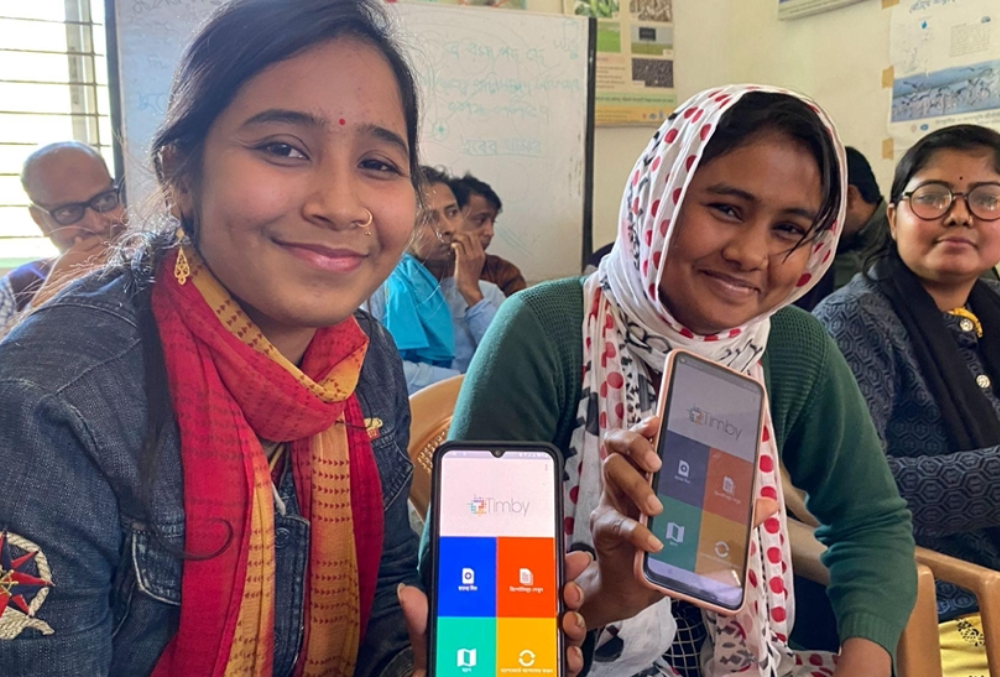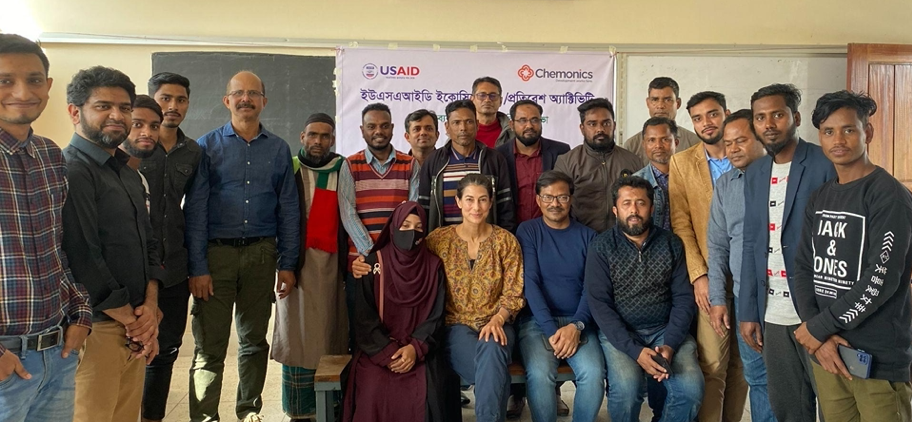24 May 2023
Protecting Wetlands In Bangladesh
USAID Ecosystems/Protibesh introduces Timby to communities in Bangladesh to help protect the country's biodiversity-rich wetlands.
Back to BlogsTimby, a technology company dedicated to supporting environmental and human rights defenders, has launched an environmental reporting system in Bangladesh’s wetlands as part of the 5-year USAID Ecosystems/Protibesh Activity, which supports conservation of the country’s key biodiversity areas. USAID Ecosystems/Protibesh is being implemented by Chemonics, in partnership with several local and national NGOs, such as CNRS, Arannayk Foundation, and ICCAD Bangladesh.

The reporting system aims to engage citizens in monitoring the presence of important species and to report stresses to the ecosystem caused by illegal fishing, over-extraction of resources, illegal possession of wetlands, land use change, siltation, and destruction of swamp forests. Village Conservation Groups (VCGs), youth clubs, tourists, and the general public will be driving the system in the Hakaluki Haor region, one of Bangladesh’s largest marsh wetland resources, which nearly 200,000 people rely on for their livelihoods.
Using the encrypted Timby mobile application, citizens will report environmental incidents and data will be moderated on the Dashboard by a coalition of organizations. Issues will be triaged as needed to Bangladesh’s Department of Environment, Department of Fisheries, Department of Forestry, law enforcement, policy makers, and the media.

In January, dozens of citizens with membership across six VCGs were trained to use the Timby reporting system. This was followed by additional trainings of 15 VCGs in March. The majority of those trained were between the ages of 18-30, with a number of women participants.
During the training sessions, VCG groups discussed the importance of caring for these precious ecosystems and the various strategies they would use to do so. Reporting on illegal activities and harmful issues using the Timby tools was considered one of the most important ways to easily and safely share evidence of incidents within the hoars with government agencies that could help resolve or remedy the problems.
Bangladesh is a country with vast wetland resources, covering about 50% of the country’s land surface. The greater part of the northeast region consists of wetland basins and is characterized by the presence of numerous large, deeply flooded depressions, known as haors. Wetland haors are important carriers of unique biodiversity and are considered the most important resources of Bangladesh.
The project will expand to several other major haors throughout Bangladesh, followed by coastal and potentially forested areas. The environmental reporting system has the potential to help preserve and protect Bangladesh’s natural resources for future generations.
Article by Showmik Aziz and Shuvra Dutta

